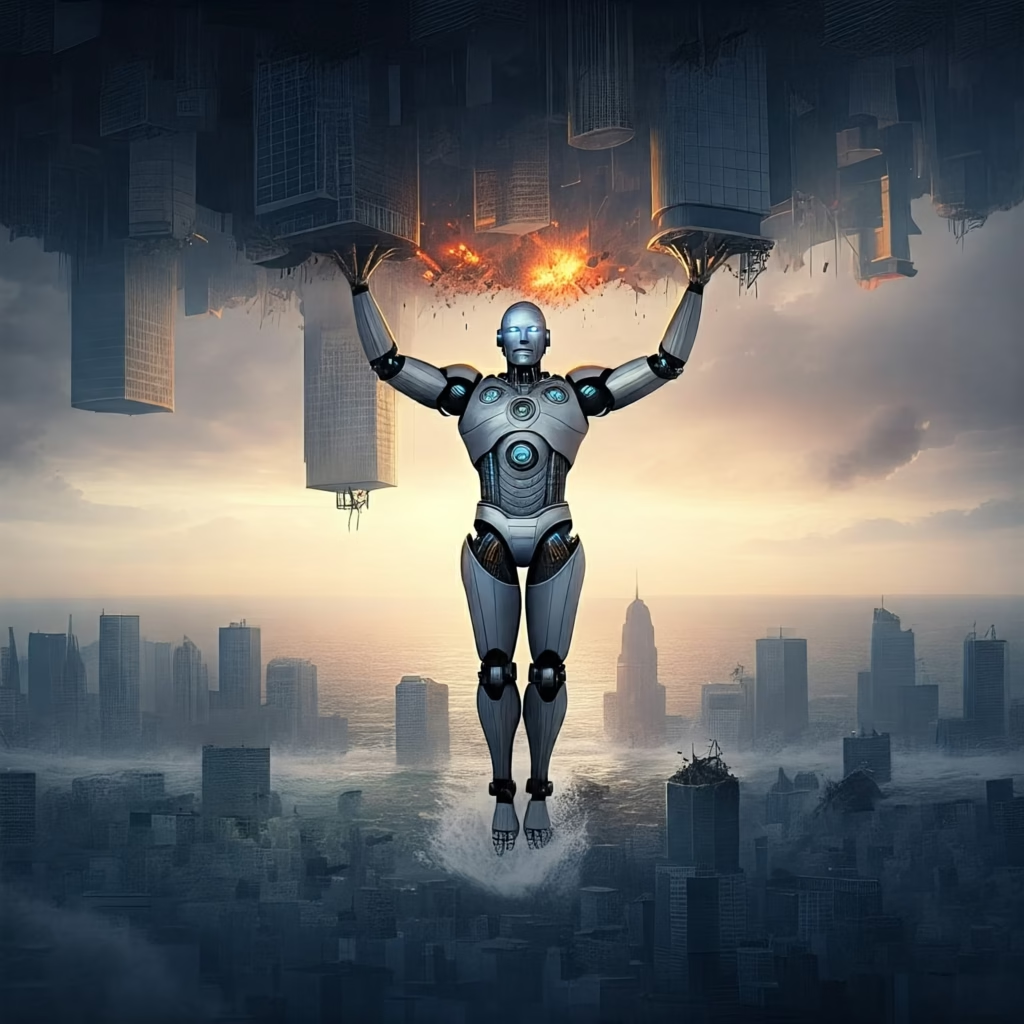Artificial intelligence is no longer a futuristic fantasy; it’s here, and it’s changing the world. But could this technology, often depicted in science fiction as a threat, actually be the key to solving some of humanity’s biggest problems?
From the climate crisis to global poverty, the challenges facing our world are complex and interconnected. Traditional solutions are often slow, inefficient, and struggle to adapt to rapidly changing circumstances. This is where AI steps in, offering a powerful new toolkit with the potential to revolutionize how we approach these issues.
A Brighter Future, Powered by AI:
Imagine a world where:
- Climate change is mitigated: AI optimizes energy grids, accelerates the development of renewable energy sources, and predicts natural disasters with unprecedented accuracy, allowing for proactive mitigation and response.
- Diseases are eradicated: AI algorithms diagnose illnesses with incredible precision, personalize treatments, and accelerate drug discovery, leading to longer, healthier lives for everyone.
- Poverty is a distant memory: AI provides personalized education, connects people to economic opportunities, and optimizes resource distribution, ensuring everyone has a chance to thrive.
- Food security is ensured: AI-powered precision agriculture maximizes crop yields, reduces waste, and helps farmers adapt to changing climates, ensuring everyone has access to nutritious food.
This may sound like a utopian dream, but the building blocks are already in place.
AI in Action: Real-World Examples
- Fighting Climate Change: Google’s DeepMind has already used AI to reduce energy consumption in its data centers by 40%. Other projects are using AI to optimize traffic flow in cities, reducing emissions and improving air quality.
- Revolutionizing Healthcare: AI is being used to detect cancers earlier, predict patient outcomes, and even develop new drugs. In some cases, AI algorithms are outperforming human experts in diagnosis and treatment planning.
- Tackling Poverty: AI-powered platforms are connecting people in developing countries with micro-loans and educational resources, helping them break the cycle of poverty.
The Challenges of AI for Good:
While the potential of AI is immense, there are also significant challenges:
- Data Bias: AI algorithms are only as good as the data they are trained on. Biased data can lead to biased outcomes, perpetuating existing inequalities.
- Ethical Considerations: As AI becomes more powerful, it raises ethical concerns about privacy, accountability, and the potential for misuse.
- Access and Equity: Ensuring that the benefits of AI are shared equitably across all populations is crucial to avoid exacerbating existing inequalities.
Collaboration is Key:
To truly harness the power of AI for good, we need collaboration between governments, researchers, businesses, and civil society. We need to develop ethical guidelines, invest in research and development, and ensure that AI technologies are deployed responsibly and inclusively.
The Future is Now:
The future of AI is not predetermined. It is up to us to shape it, to ensure that this powerful technology is used to build a more just, sustainable, and prosperous world for all. The potential is there, waiting to be unlocked.



